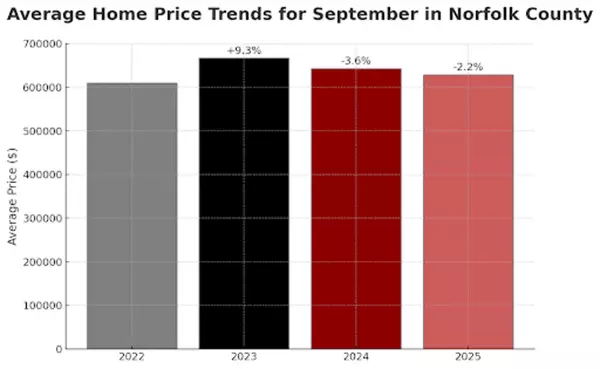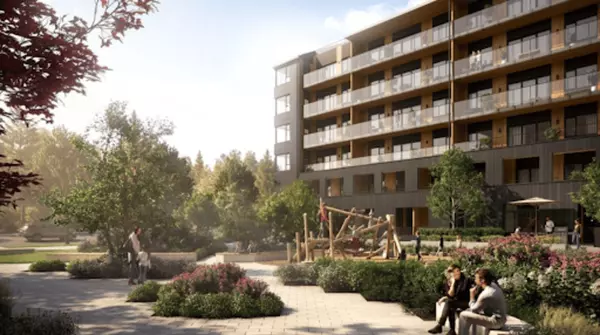Many Municipalities Failing to Reach Their Housing Targets
When it comes to meeting housing targets, most municipalities in the Greater Toronto Area and Greater Golden Horseshoe region got a failing grade in a recent report commissioned for RESCON.
The findings are troubling and should set off the alarm bells for policymakers across all three levels of government.
The assessment was done by the University of Ottawa’s Missing Middle Initiative and was based on data obtained from CMHC and Altus Group.
Disturbingly, of the 34 municipalities that were graded, 22 received an F, another five received a D, and the other seven municipalities received a C or higher. Brantford had an A-plus and Milton an A.
Researchers did a deep dive on housing starts, sales and industry employment across the municipalities and assessed the state of housing sales and construction over the first six months of this year, compared to the same period in the previous four years. The analysis concluded that housing unit sales and starts have all but ground to a halt.
In the first six months of 2025, housing starts were down an average of 40 per cent in the 34 municipalities. Condo apartment starts over the first six months were down 54 per cent relative to 2021-24, while purpose-built rental starts were up eight per cent. Starts for everything other than apartments were down 42 per cent.
In Toronto, starts in the first six months of 2025 were down 58 per cent, and sales declined 91 per cent compared to the same period between 2021-24, while industry employment fell by 10,209 jobs.
It is clear that our industry has hit a wall, and the future outlook is bleak. We are presently trending in the wrong direction. Pre-construction sales, considered a prime indicator of the market’s health, are down 89 per cent for condo apartments and 70 per cent for ground-oriented homes. In the GTA, it is anticipated that there will be fewer than 5,000 housing units sold this year.
Industry employment is suffering. The reduction in housing starts in municipalities over the first six months of 2025, relative to 2021-24 averages, translates into 24,195 fewer person-years of employment.
The federal government has pledged to build 500,000 units in each of the next 10 years, and the Ontario government has promised 1.5 million homes between 2023 and 2031. While the targets seem impossible just now, governments can spur more production by lowering the tax burden.
I fear that the situation could get even worse if governments fail to reduce the tax burden. Presently, taxes, fees and levies account for 36 per cent of the price of a new home. Cutting federal and provincial sales taxes on a $1-million new home would reduce the cost by $130,000. The federal government has agreed to cut the five-per-cent sales tax for first-time buyers retroactive to May 27 and is presently working out the regulations to make this happen.
First-time buyers account for 39 per cent of the market, according to Tarion, Ontario’s new home warranty program.
Ontario Premier Doug Ford had initially indicated he would follow suit with a cut to the eight-per-cent sales tax on first-time buyers, but unfortunately, he appears to be walking back that commitment.
The province should immediately commit to sales tax relief for first-time buyers. Both the feds and the province should also pledge to provide such relief to all buyers of new homes.
Think about it for a minute. With starts and sales declining, the feds and province aren’t getting much in the way of tax revenues for new housing anyway, but if they waived the sales taxes, more homes would be built, creating more construction jobs and driving demand for Ontario-produced steel and lumber. All of this, of course, means more jobs and a healthier economy – and more tax revenue.
The ratio of housing costs to incomes has become grossly imbalanced. People need housing, yet we are presently taxing it like cigarettes and alcohol – so-called sin taxes that are designed to discourage use.
The present sales taxes and exorbitant development charges are crippling the new housing in industry. They’re brutally regressive and only penalize new home buyers – many of them young families.
The divergence between the cost of new housing and what people can afford to pay has expanded. Without some form of tax relief, the gap will remain, and residents will seek housing out of province. It is already happening, with many individuals and families moving to Alberta. Housing is central to the well-being and prosperity of our society. You can’t build a strong economy without housing that is affordable and attainable. You can’t attract investment without it.
Governments must work together on a strategy to lower the sales taxes on new housing. There is no time to waste.
Recent Posts










